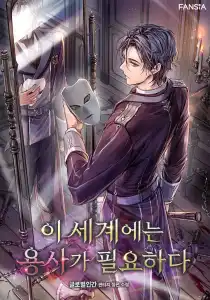Chapter 137: Poland Shall Not Perish
On a September morning, a man arrived at the gates of the "Bonaparte Institute" and presented a letter signed by Fouch and Carnot, requesting a meeting with Joseph.
The letter was promptly delivered, and the man waited outside.
"Vibitsky? Sounds like a Slavic name," Joseph mused as he examined the introductory letter. Although the letter contained almost no information apart from the bearer's name, Joseph had a rough idea of the visitor's purpose.
"Very well, take him to the meeting room, and I'll be there shortly," Joseph instructed.This chapter is updated by nov(e)(l)biin.com
A while later, Joseph met a man named Joseph, with the surname Vibitsky, in the meeting room.
"Hello, General Bonaparte, I am a representative of General Kociuszko, and we hope to purchase some weapons from you for the just cause of the Polish people," the man explained in somewhat broken French.
Joseph recognized the name Kociuszko. He knew that Kociuszko was a Polish military officer, and after the second partition of Poland in 1793, Poland was on the brink of annihilation. In March 1794, General Kociuszko, seizing the opportunity presented by the French victory over the Austrians and Russians, initiated an uprising in Krakw to reclaim Polish territory and establish a new Poland. With the chaos in France after the Thermidorian Reaction, there was relatively little military pressure from the north, and much of it was attributed to General Kociuszko.
To suppress his uprising and to prevent Russia from taking the rest of Poland, Prussia and Austria, despite British opposition, transferred troops from Belgium to Poland. General Kociuszko had hoped that France would divert enemy forces, but instead, he ended up drawing them to support France.
"What kind of weapons are you looking to purchase?" Joseph inquired directly, as the visitor had been.
"Bonaparte muskets, the authentic ones," Vibitsky replied.
"Well, we've just resumed the production of those weapons," Joseph said. "So, how many do you need, and how will you pay for them? Regarding transportation, will you handle it yourself, or would you like us to deliver the goods?"
Vibitsky provided a number and added, "If the price is right, we may place additional orders."
Joseph shook his head internally at the mention of "additional orders." Given the precarious situation in Poland, it was unclear how long they could sustain themselves.
After considering, Joseph quoted a price. "Is this price too high?" Vibitsky seemed surprised. "Other manufacturers offer much lower prices."
Vibitsky corrected Joseph, "There is no 'Gdask,' only 'Gdynia' (the Polish name for Gdask)."
Vibitsky inquired about the order quantity required for this service. Joseph responded, "If you double your order quantity, we can deliver the goods to Denmark for free. But I must be honest, your enemies are formidable, and while I admire your courage, your struggle may not have a favorable outcome."
Vibitsky's face changed, and he seemed ready to challenge Joseph to a duel. "Bonaparte, what do you mean?" he asked, his eyes burning with anger.
Joseph reassured him, "Mr. Vibitsky, please, do not be upset. I have no ill intentions. I merely wish to offer advice as a friend and as a friend of the Polish people in the current situation. You should know that in all of Europe, there is no more reliable friend for the Polish people than France."
This statement calmed Vibitsky, who apologized for his emotional outburst. He asked Joseph whether he genuinely believed their struggle had a bleak future.
Joseph confirmed his belief, attributing it to the internal issues in France that were diverting its attention from Poland's plight. He said, "Even if this uprising does not immediately reclaim your territory, it can inspire national spirit. With such spirit, even if Poland faces temporary setbacks, it will not truly perish."
"Thank you for your encouragement," Vibitsky replied.
Joseph then recommended that they prepare for the future. He advised against direct confrontation if the enemy was too powerful, suggesting a guerrilla warfare strategy. Joseph explained that if the resistance remained strong and united, Poland could prevail. He encouraged Vibitsky to organize a resistance and to undermine the invaders' efforts by making their costs exceed their gains.
Vibitsky stood up, excited by Joseph's words, and declared, "Poland shall not perish as long as the flame of resistance burns."
Joseph proposed another weapon called "Bonaparte's Mousetrap," which was essentially a landmine with a fuse. Vibitsky eagerly accepted the offer to see it.
Joseph explained that they were selling only the fuse, as Vibitsky's forces could easily create the body of the landmine using stones and black powder. He assured Vibitsky that, even though they would have to assemble it themselves, the cost would be much lower.
Vibitsky was delighted and declared that he would acquire the fuses.
"Mr. Vibitsky, for this sacred cause, we must work together," Joseph emphasized. "And remember, as long as the flame of resistance burns, Poland shall not perish."
Vibitsky was now invigorated and determined to return to Poland and lead the resistance. He thanked Joseph for his support and advice.
Joseph concluded the meeting by saying, "Remember, we are friends of the Polish people, and as long as we stand together, Poland's spirit will endure, and Poland shall not perish."







